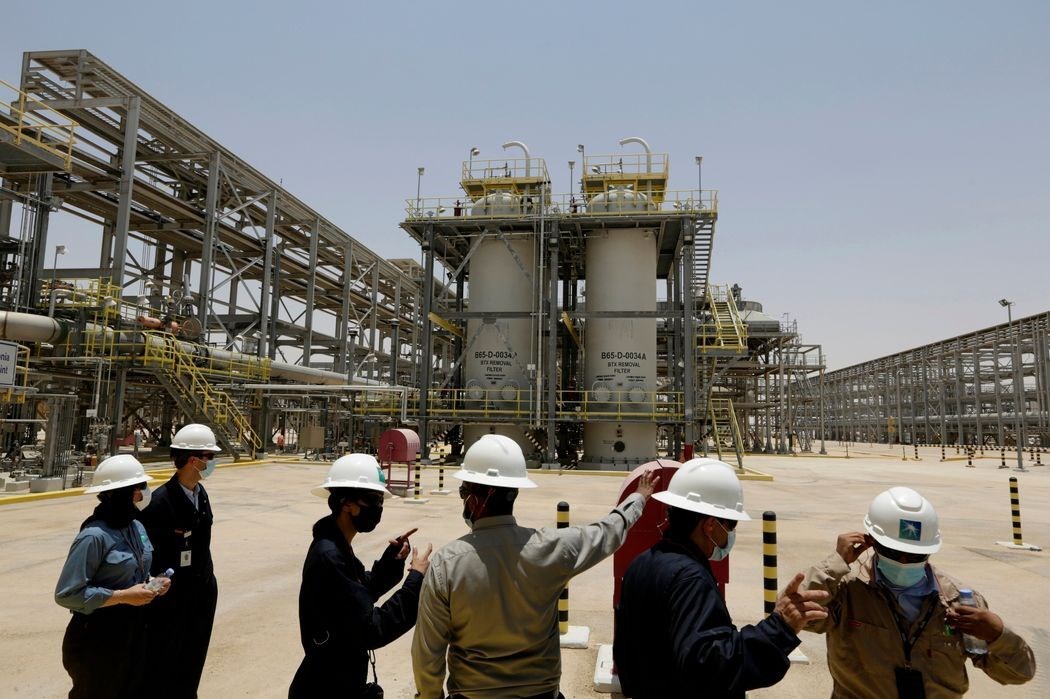Tensions between Riyadh and Moscow on the rise due to oil prices: WSJ
A report by the Wall Street Journal shows that Saudi Arabian officials are disgruntled by Russia's oil production numbers and have pleaded with Moscow to reduce output as Riyadh seeks to push oil prices past the 80$ mark.
-

Saudi Arabia's Hawiyah Natural Gas Liquids Recovery Plant which is operated by ARAMCO (AP)
Tensions are on the rise between Saudi Arabia and Russia after Moscow cut oil prices, according to a report by the Wall Street Journal.
Saudi Arabia has been pushing to spike global energy prices by limiting oil production and officials are disgruntled by Russia's noncompliance with the policy, sources to WSJ said.
They added that "Saudi officials have complained to senior Russian officials and asked them to respect the agreed cuts."
The report says that frictions "between the world's two biggest oil producers ahead of a crucial meeting between members of" OPEC+ are "very apparent" as the sides are set to meet in Vienna on June 4.
The report pointed to recent data that shows Russia upscaling of production which has pushed oil prices down as Saudi began to implement production cuts this month.
The news of this dispute comes amid an improvement in relations between the two countries in recent years, especially on energy levels and a number of political files, most notably Riyadh's position on the war in Ukraine, which remained below the level that Washington had hoped from Riyadh.
Oil prices have decreased by around 10% since early April after members of OPEC+ agreed to reduce oil output for the month. On Friday, Brent, the international oil contract, registered a rise of 0.9% to $76.95.
Recently Saudi Arabia has been able to find common ground with heavily sanctioned Russia which is facing broad Western sanctions which have targeted its energy industry among other sectors. As both countries look to get the best price possible for their carbon-based energy products.
The hike in oil prices comes amid uncertainties about the next move to be taken by OPEC+ after ministers raised market uncertainties ahead of the upcoming meeting for the organization.
According to Russian Deputy Prime Minister Alexander Novak, the price of Brent crude oil may rise over $80 per barrel by the end of the year, especially in light of an increase in demand over the summer, as well as OPEC+ output reductions.
"But I repeat once again: we do not have the task of inflating prices; there is the task of balancing in order to ensure the interests of both producers and consumers," the Russian top official stressed.
WSJ's report says that Riyadh is "under pressure to maintain higher oil prices with its budget requiring an estimated $81 a barrel" to meet expenditures.
The country has undertaken "massive development projects" which have been described as "gigaprojects" that have pushed Riyadh to increase oil income to fund its spending which has been estimated to cost hundreds of billion of US dollars.

 3 Min Read
3 Min Read








